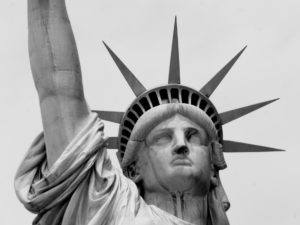Immigration Law Update
November 2021
Vaccine Mandate Applies to Foreign Travelers as Previous Travel Restrictions are Lifted
The United States updated its COVID-related travel restrictions effective November 8, as foreign travelers now generally are required to have received vaccines against COVID-19 in order to enter the United States. This new policy ended per-country travel restrictions that vastly restricted international travel to the United States from most of Europe, Brazil, China, India, Iran, and South Africa.
Travelers will now be required to provide proof of full vaccination before boarding flights to the United States as well as a negative COVID test taken within three days of departure. Those exempt from this requirement include unvaccinated Americans, lawful permanent residents, children under 18, people medically unable to receive the vaccine, and emergency travelers who do not have timely access to a vaccine. However, these travelers must provide documentation of a negative COVID test taken within 24 hours of travel.
DHS Announces New Requirements for Land Border Crossings
Beginning on November 8, 2021, non-citizen travelers who are fully vaccinated for COVID-19 and can provide documentary proof can enter the U.S. for both essential and non-essential travel at U.S. land borders. At the land border, travelers may be asked to provide proof of COVID-19 vaccination.
As with travel by air, children under 18 years of age, U.S. citizens, lawful permanent residents, and those traveling for essential reasons will be exempt from this requirement. Essential reasons include traveling for medical purposes, attending education institutions, essential work, emergency response and public health purposes, cross-border trade, official government or diplomatic travel, and members of U.S. Armed Forces and their children or spouses returning to the U.S.
Starting in January 2022, the Department of Homeland Security (DHS) will require all inbound foreign national travelers seeking to enter the United States to be fully vaccinated and provide proof of the vaccination, regardless of the reason for their travel.
Visa Bulletin Retrogression Negatively Affects Permanent Residence Processes for Certain Employment-Based Immigrants from India and China
In the past month, many employment-based immigrants from India and China received disappointing news when the U.S. Department of State’s Visa Bulletin resulted in a retrogression in the EB-3 category for skilled workers.
The retrogression set back the current priority date roughly two years for people in the India EB-3 category and nearly a year for people in the EB-3 China category. Those who were in these categories affected by this retrogression whose permanent residence applications were not adjudicated by October 31 will now have to wait once again until their priority dates become current to have a chance to obtain permanent residence.
Many of these people have been waiting for nearly a decade for their priority dates to become current.
Biden’s Proposed Social Spending Bill Seeks to Recapture Previously Unused Immigrant Visas to Alleviate Current Quota Backlogs
President Biden’s social policy and climate bill includes an immigration provision that could speed up the permanent residence process for large numbers of intending immigrants who are stuck in the quota backlog.
The proposal would make available hundreds of thousands of green cards that various administrations failed to use over several decades for legal immigrants currently suffering from delays attributable to the quota backlog. Under the proposed legislation, those unused green cards would be “recaptured” and made available to applicants. Foreign nationals who have been stuck on waiting lists would also be able to pay higher fees to move up in the line for legal status.
The bill also includes a $100 billion investment to reform the immigration system, as well as reducing backlogs, expanding legal representation, and making the asylum system and border processing more efficient and humane. A key hurdle these provisions face is whether the Senate parliamentarian determines that these types of measures are appropriate for the budget reconciliation process, which would shield them from the possibility of a filibuster.
New Employment Authorization Policies for H-4s and L-2s
A recent settlement will change how USCIS adjudicates certain Employment Authorization Documents (EADs) for nonimmigrant H-4 and L-2 spouses suffering from long delays in processing times. As part of the settlement, H-4 spouses will be granted 180 day automatic EAD extensions while their applications are pending.
In addition, USCIS will also grant L-2 work authorization incident to status, meaning the spouses of executives/managers and specialized knowledge workers will no longer have to apply for employment authorization prior to starting work in the U.S. Details regarding these programs should be available in the next few weeks.
* * *
If you have questions or would like to learn more about the items discussed above or other immigration topics, please contact Karen Moss or Brad Ortman of the Immigration Law Group at Nicola, Gudbranson & Cooper via email or at (216) 621-7227.
Bradley L. Ortman and Karen Gabriel Moss
Nicola, Gudbranson & Cooper LLC
This Immigration Law Update contains general information that should not be considered legal advice or legal opinion concerning individual situations. Legal counsel should be consulted for specific advice.
Copyright 2021 by Nicola, Gudbranson & Cooper LLC
